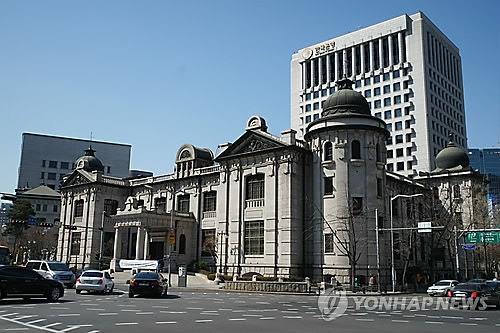The head of South Korea's central bank on Wednesday noted that financial and economic uncertainties remain high at home and abroad, and will likely rise for some time, demanding what he called cautious monetary and financial policies.
Citing a recent newspaper report, the Bank of Korea governor said the only thing central banks are certain of are high uncertainties.

"Uncertainties at home and abroad are continuing to increase, and they may further expand following the outcome of the upcoming vote on a British exit from the European Union," Lee Ju-yeol said in a monthly breakfast meeting with leading economists here.
The South Korean top central banker also listed a U.S. rate hike as another factor raising global uncertainties, noting the U.S. Federal Reserve was well expected to increase its key interest rate before the year's end.
On the domestic front, the BOK governor said corporate restructuring, currently under way in the most troubled shipbuilding and shipping sectors but expected to spread to other industries, will likely continue to undermine local conditions for some time.
Also noting the recent increase in the unemployment rate in the southeastern area, where most of the troubled shipbuilders are located, Lee said the fallout from the corporate restructuring will become more visible.
An earlier report from the statistics office said the jobless rate in the southeastern South Gyeongnam Province came to 3.7 percent in May, gaining 1.2 percentage points from a year earlier and marking the fastest on-year increase throughout the nation.
Lee said the new anti-graft law, known as the Kim Young-ran Act that is set to go into effect in late September, will likely create fresh uncertainties for the local economy by adding to already sluggish local spending if enacted as scheduled.
In an apparent bid to boost consumption, the central bank slashed its policy interest rate to a new record low of 1.25 percent earlier in the month, marking its first rate cut in 12 months.
"The government too appears to be determined to actively support more spending through its financial policies," Lee said.
The BOK head, however, also warned against what he called "unintended" or unwanted outcomes of quantitative easing, such as a rise in household debt, outflow of foreign capital and overheating in the real estate market.
"We are closely monitoring the market to make sure that such unintended outcomes will not emerge," he said.
South Korea's household debt peaked at the end of 2015, and then again at end-March as the BOK kept its key rate frozen at record low levels to bolster growth in Asia's fourth-largest economy. (Yonhap)







